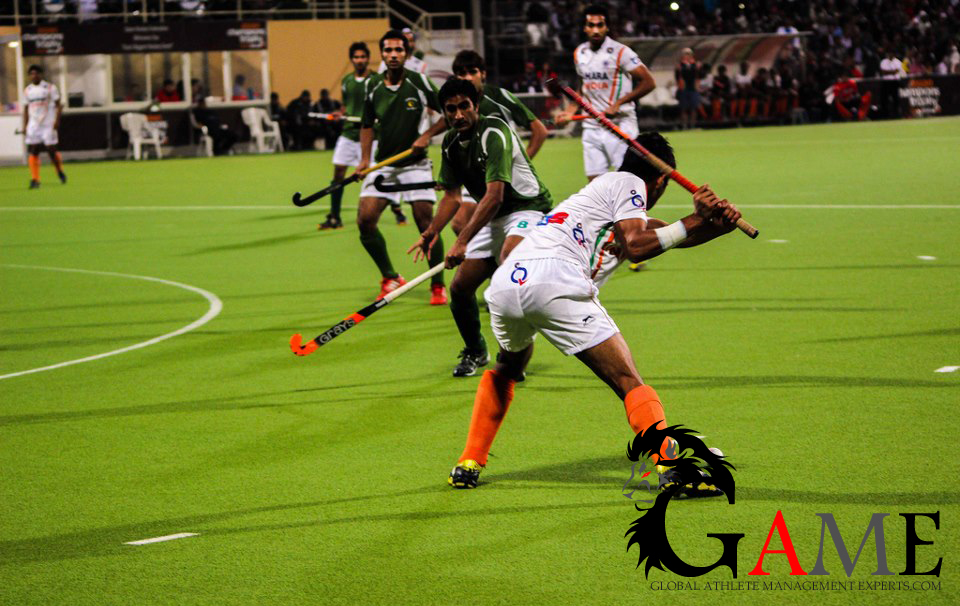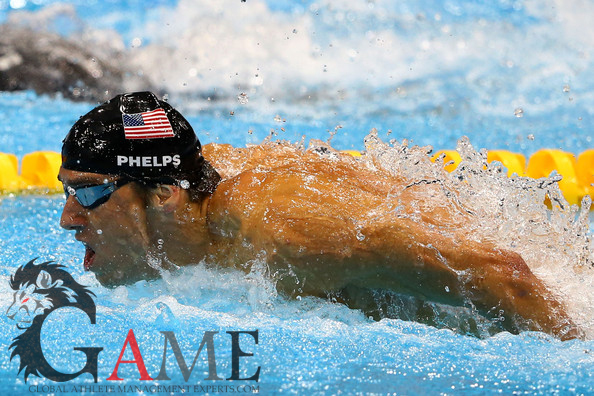Pakistan beat India in opening Twenty20 International
December 26, 2012
Hockey: India fail to defend Asian Champions Trophy, lose 4-5 to Pakistan
December 28, 2012
ESPNSTAR.com takes a look back at the major sports stories which grabbed the headlines in each month of 2012.
It has been one exciting, unpredictable and all-round fantastic year in the world of sports. Records have been shattered, careers made, while others ended, and there was drama aplenty for all to savour. The thrill that the year 2012 had provided us will undoubtedly live long in our memories.
Here, in the first of a two part series, we take a look back at the stories which caught our eye in the first six months of the year.
January
Azarenka announces arrival in Australia
In recent years, Melbourne Park has been a bit of a platform for tennis’ up-and-coming players to announce their arrival, with Novak Djokovic, Amelie Mauresmo and Thomas Johansson all winning their first Grand Slam titles at the Australian Open.
This year, it was Victoria Azarenka’s turn.
She had impressed in 2011 but without really setting the circuit alight. But the Belarusian wasted no time in doing so come the new year – dropping just two sets along the way to her maiden Grand Slam title.
The triumph vindicated Azarenka’s decision to stay in tennis, having contemplated quitting the game to go to university just ten months before.
“I guess I made a pretty smart decision not walking out,” she said after winning in Melbourne, according to The Telegraph.
The decision looked smarter with every passing month as the 23-year-old took a total of six titles in the year, a bronze medal for her country at the Olympics and ended 2012 as the leading women’s player in the world.
Her arrival as a bona-fide star also highlighted the competitiveness of the women’s game at the moment, with the last eight Grand Slam events having produced seven different winners.
February
New York Giants win Super Bowl XLVI
There was no bigger story in the world of sport in February than Super Bowl XLVI.
Much, much more than a showcase of quirky American advertising, it’s the pinnacle of American football and the showpiece event for the sport’s professional league – the NFL.
A record 111.3 million viewers in the U.S. – and millions more around the world – watched as the New York Giants defeated the New England Patriots 21-17 in the Super Bowl.
The finale proved to be a thrilling affair, as Eli Manning led a fourth quarter touchdown drive. It was also a fitting end to the 2011-12 NFL season which began in turmoil with a lockout but ended in glory.
Eli went 30 for 40 for 296 yards in the final with one touchdown pass and zero interceptions while Giants wide receiver Victor Cruz stood out with four catches for 25 yards – including a touchdown.
Eli now has one more Super Bowl title than his more famous older brother Peyton.
March
Rahul Dravid calls it a day
Nearly 16 years after he made his debut in Saurav Ganguly’s shadow with twin half-centuries against England at Lord’s, the best number three India has ever produced hung up his gloves for good.
Those 16 years produced 13,288 of the most technically correct runs in Test cricket. A big majority of those came during an age of unprecedented success for India.
The decade began with that historic match-winning partnership with VVS Laxman at Eden Gardens in 2001, the double hundred against the same opposition at the Adelaide Oval in 2003 with a sublime 148 against England on a seaming track at Headingly in 2002 sandwiched between the two.
Through the noughties, as more Indian success followed, Dravid was perhaps the most crucial batsman for his side, particularly on overseas pitches, coming in early more often than not and taking the sheen off the new ball so that the strokemakers who followed could make hay.
Nor did he go quietly. No, the man who willed himself to greatness with sheer bloody-mindedness raged against the dying light both his own and India’s – scoring three centuries as his side went down 4-0 to England.
He was bowled six times in eight innings against Australia a few months later, unthinkable for someone possessed of such technical purity, and retired soon after.
An out-and-out old school cricketer and the classiest of men, Rahul Sharad Dravid’s departure has left Indian cricket so much poorer both on and off the pitch.
April
Rosberg ends Mercedes drought
It was a series of Nico Rosberg and Mercedes firsts at the Chinese Grand Prix.
The less famous German in the team Rosberg surprised everyone by gaining his first and thus far sole pole position in six year career on the Formula One circuit.
The German driver posted a best time of 1:35.121, beating closest challenger Lewis Hamilton’s qualifying time by over half a second.
The race itself was a brilliant back and forth affair between Rosberg, Jenson Button and Hamilton, but it was the Mercedes driver who emerged victorious, capitalising on a devastating pit-stop error by Button to finish a commanding 20 seconds ahead of the Brit, who had to settle for second.
This was the 27-year-old’s first Formula One win. He also became the first Mercedes driver to win a race since Juan Manuel Fangio in the 1955 Italian GP and the first German since Hermann Lang in 1939 to take the chequered flag in a German car.
May
Robshaw underlines his talent
If there is one player who would consider 2012 to be his year, that man would be Chris Robshaw. The English flanker was omitted from the national squad for the 2011 Rugby World Cup and he answered that snub with some style leading the Harlequins to their first Aviva Premiership crown with a superb season and starring in the 30-23 win over Leicester Tigers in the May final at Twickenham.
Not only did he win the Player of the Year accolade later, he has also solidified his position as England captain, which he earned earlier in January despite having featured just once for the national squad prior to the Six Nations Tournament.
June
Rafa makes it a Magnificent Seven
If there were any doubts as to who the greatest clay court player of all time is, Rafael Nadal banished them emphatically with a record seventh French Open title. He did it against Novak Djokovic too – the man who had absolutely tormented him through 2011 and all the way to the 2012 Australian Open.
On Philippe Chatrier, it was vintage Nadal – hunting down every ball, slamming forehand winners with unbelievable feoricty and whipping up the crowd into a frenzy with the nakedness of his emotion. At the end of it all, he had surpassed Bjorn Borg as the man with the most French Open trophies.
Two weeks later, Nadal would lose to Lukasz Rosol in the second round of Wimbledon in perhaps the upset of the century, and not play again in 2012. But despite missing out on sixth months of action, the Spaniard left an indelible mark on the year and on tennis history.
And so does Lewis Hamilton
Never before had Formula 1 seen seven different winners in the opening races. Jenson Button, Fernando Alonso, Nico Rosberg, Sebastian Vettel, Pastor Maldonado, Mark Webber and Lewis Hamilton changed that. From Melbourne to Montreal, each race saw a different driver atop the podium – underscoring the quality of both the cars and those behind the wheel.
At the end of the season, it was Vettel who emerged victorious for the third time running, but the opening few weeks of the season made fans out of even the avowed F1 atheists.
King James ascends the throne
Two years after one of the most controversial and fractious NBA transfers in history, LeBrom James’ decision to move from his native Ohio in pursuit of an NBA championship was vindicated in style.
The Miami Heat beat the Oklahoma City Thunder 4-1 in the NBA Finals at the end of a shortened season to deliver what James had been craving for so long. For the former Cleveland Cavaliers’ small forward, the trophy came with the Finals MVP accolade as well – and established him as one of the best NBA players of all time.
July
Federer breaks Sampras’ No. 1 record
There is not much Roger Federer hasn’t achieved on the tennis court.
With his record 17 Grand Slam titles just one in a long list of achievements to his name, the Swiss maestro is already widely regarded as the best tennis player ever.
If there were any doubters left, they probably converted when the 31-year-old reclaimed the world number one spot following his seventh triumph at Wimbledon and passed Pete Sampras’ record for most number of weeks at the top in the process.
“I am extremely proud and honoured to have beaten Pete’s record as he was my childhood hero and I have always looked up to him,” he told The Telegraph after achieving the feat.
Sampras himself was effusive in his praise of his usurper, saying: “The hardest thing to do in sports is the ability to stay on top. Roger has been able to do so by great play and durability.”
Phelps becomes greatest Olympian ever
For the longest time, Michael Phelps was regarded by many as the greatest athlete in Olympic history.
Just like with Federer though, there were a few doubters of that claim. And just like Federer, the American swimmer made sure there would be no further debate after picking up his 18th and 19th medals on the final day of July at the Summer Olympics.
In doing so, he broke the 48-year-old record set by former Soviet gymnast Larisa Latynina and then for good measure, picked up another two in the following days to set a new medal tally record that is unlikely to be surpassed any time soon.
August
London 2012 signs off in style
Fireworks accompanied by a blast of The Who’s ‘My Generation’ marked the end of the London 2012 Olympic Games. The £13million closing ceremony may not have been as spectacular as its opening, but for what it lacked in punch it made up for in entertainment.
Celebrity performances from old and new saw names like the Kaiser Chiefs, Annie Lennox, One Direction, the Spice Girls and Liam Gallagher light up London while Freddie Mercury also made an appearance on screen as did Beatle John Lennon.
But the real stars of the show were the athletes.
The likes of Usain Bolt, Mo Farah, Jessica Ennis and Michael Phelps ensured London 2012 would not be forgotten in a hurry.
“They were happy and glorious Games,” said Jacques Rogge, President of the International Olympic Committee.
The legacy of the games continues to bear fruit for its hosts. After 65 medals, including 29 gold – the best British showing for more than a century – there has been a surge in grassroots sports participation.
According to figures released by Sport England, 15.5 million people in England aged 16 and over took part in sport at least once a week over the past 12 months – a 750,000 rise on last year’s figure.
Rory roars to second major
Rory McIlroy proved his standing in the game as a future legend by storming to the USPGA title at Kiawah Island in South Carolina.
McIlroy won his first major by eight shots at the US Open last year and in August 2012 he repeated this winning margin at the USPGA in August 2012 – beating England’s world number 98 David Lynn this time.
“He’s [McIlroy] going to be the player that kids look up to – that kids measure their own wannabe games by,” said fellow major winner Graeme McDowell.
“Ten years ago it was Tiger Woods. It still is Tiger Woods to a certain extent, but now we’ve got superstars like Rory McIlroy for kids to be looking at.”
McIlroy closed with a 66 to lift the Wanamaker Trophy and pocket his second major – at a younger age than Tiger Woods managed it as well.
September
A 76-year-long wait comes to an end
Barely a month after winning the Olympic gold medal, Andy Murray brought more joy to Great Britain by becoming the first British Grand Slam winner since Fred Perry in 1936 after beating Novak Djokovic 7-6, 7-5, 2-6, 3-6, 6-2 in the Arthur Ashe Stadium.
In a tournament beset by strong winds and even a hurricane warning, the man from Glasgow finally delivered in the gruelling contest, having previously been accused of not having the mental steel to win a big one.
Murray had emulated coach Ivan Lendl earlier in the summer when he lost his fourth successive Grand Slam final by going down to Roger Federer in the Wimbledon final. Thankfully, Murray continued to follow in his coach’s footsteps by winning a major at the fifth time of asking.
And the world witnessed a personal and a national catharsis.
The Miracle at Medinah
Captained by Jose Maria Olazabal, the European team completed one of the greatest comebacks in golfing history to retain the Ryder Cup after edging USA by 14 ½ to 13 ½.
Trailing 10-4 at one point on Saturday, Europe turned on the form on the final day in the singles matches after Tiger Woords missed a putt to concede the final point of the tournament against Francesco Molinari to end the day with 8 ½ points to USA’s 3 ½.
The win was especially emotional for Europe captain Olazabal, who dedicated the victory to his late friend Seve Ballesteros.
“Our team played in the spirit of Seve without ever giving up,” Olazabal said after the tournament.
With Justin Rose looking up to the heavens in triumph, Sergio Garcia suggesting that Seve ‘was with me all day’ after his win and Europe’s star man Ian Poulter saying he owed his presence on the team to Ballesteros – there was more than a hint of poignancy on this – one of the most stunning days in golf and in all of sport.
October
San Francisco Giants win the World Series
If ever there was a perfect time for Pablo Sandoval to hit a purple patch, the month of October, with the Giants competing in the World Series, was it.
And the 26-year-old, who only managed 12 home runs all season, duly obliged, as he blasted three home runs on the biggest and brightest stage of the MLB campaign.
However, to give credit to just Sandoval for the Giants’ success in the World Series would be to do an injustice to the rest of the team.
The Boys from the Bay were imperious as they beat the Detroit Tigers 4-3 in extra inning to sweep the series 4-0 and win their second World Series title in three years.
November
Sebastian Vettel makes it three in a row
At the end of a season that began with seven different winners in the opening seven races, we were toasting the same man who had towered above all in the past two years.
Sebastian Vettel became the youngest-ever triple world champion in the history of Formula One after his sixth place finish in the Brazilian Grand Prix was enough to ward off the challenge of the effervescent Fernando Alonso.
Credit Red Bull, hail Adrian Newey or blame Ferrari for a poor car but reality is that the man behind the wheel still plays a huge role in the final outcome.
Vettel is undoubtedly one of the most talented drivers the sport has ever seen. Calm under pressure and absolutely supreme when starting from the front of the grid, the German looks set to build on the considerable legacy of Michael Schumacher who went into retirement a second time, this time most likely permanent, following the race at Interlagos.
December
That’s all she wrote for Punter
Even before he retired, Ricky Ponting was certain to go down in cricket history as one of the best batsmen of all time.
With the passage of time, he may also become one of the most appreciated batsmen of all time. Abrasive, controversial and opinionated, the man from Tasmania rarely bothered with the niceties.
Instead, he focused all energy on making his bat talk.
And talk it did – to the tune of 13,704 Test runs replete with hooks, pulls and cuts of the highest quality. He ended up as Australia’s leading run-scorer in Test cricket as well as the sport’s most successful captain with 48 wins in 77 matches.
Through much of the previous decade he was the most feared batsman in an Australian team brimming with them. Matthew Hayden, Justin Langer, Mark Waugh, Steve Waugh and Adam Gilchrist were all once-in-a-generation talents. Ponting overshadowed them all.
With Rahul Dravid retiring earlier in the year, cricket fanatics could be forgiven for thinking that the sky is falling on their heads.
They wouldn’t be too far off for it will be a long time before Australia, and cricket, unearths another like Ricky Thomas Ponting.
Sachin goes to the sound of 1.2 billion mourning
What can one say about Sachin Tendulkar that hasn’t already been written before? Not much. Yet, we must try. We have to.
To any man, woman and child who lived through the 90s in India and followed cricket, Tendulkar was, with only slight exaggeration, a supernatural being. The man from Mumbai wielded a remote control that could pause an entire nation.
Traffic grind to a halt, conversation stopped and superstitions abounded while Sachin was batting. Bladders were clenched, nails chewed and gasps echoed around living rooms across homes from Kashmir to Tamil Nadu, from Gujarat to Arunachal Pradesh.
To those not privileged enough to own TV sets, television showrooms became places of pilgrimage. So did “paan shops” – the ubiquitous betel-leaf selling shacks that dot the Indian landscape.
It was the only time when a country that could rarely even agree on what day of the year it was came together in worship of its living deity. Only those that lived through it can understand the level of fanaticism Tendulkar evoked across India.
Everyone can appreciate the sheer numbers though. 18, 426 runs. 49 centuries. 96 half-centuries. An average of 44.86 and a top-score of 200 not out over the course of 23 years.
He will still be around in the longer version of the game, of course, but Sachin was the golden child of the ODI generation. He went on a two-decade long joyride with the bat and millions hopped on.
For that, India must remain forever grateful.
Courtesy: ESPN STAR




